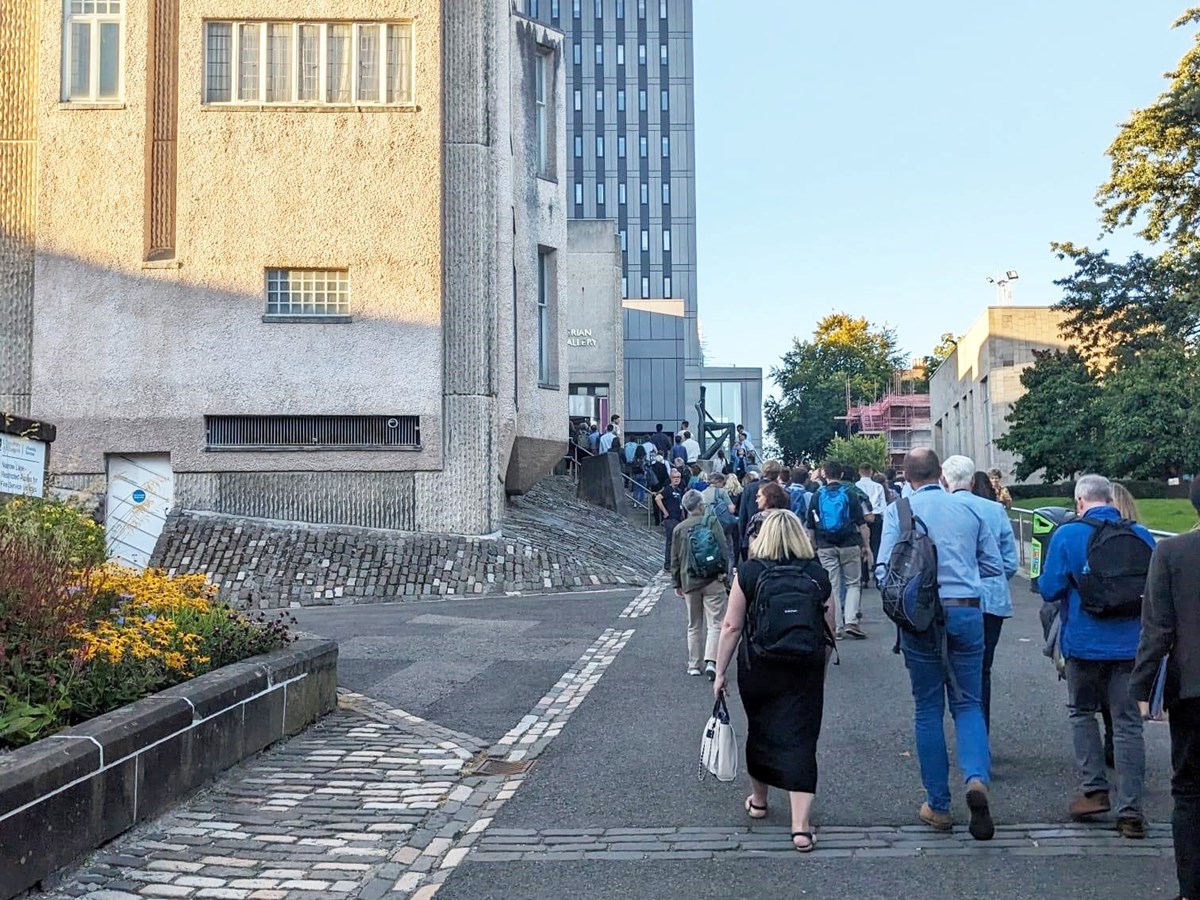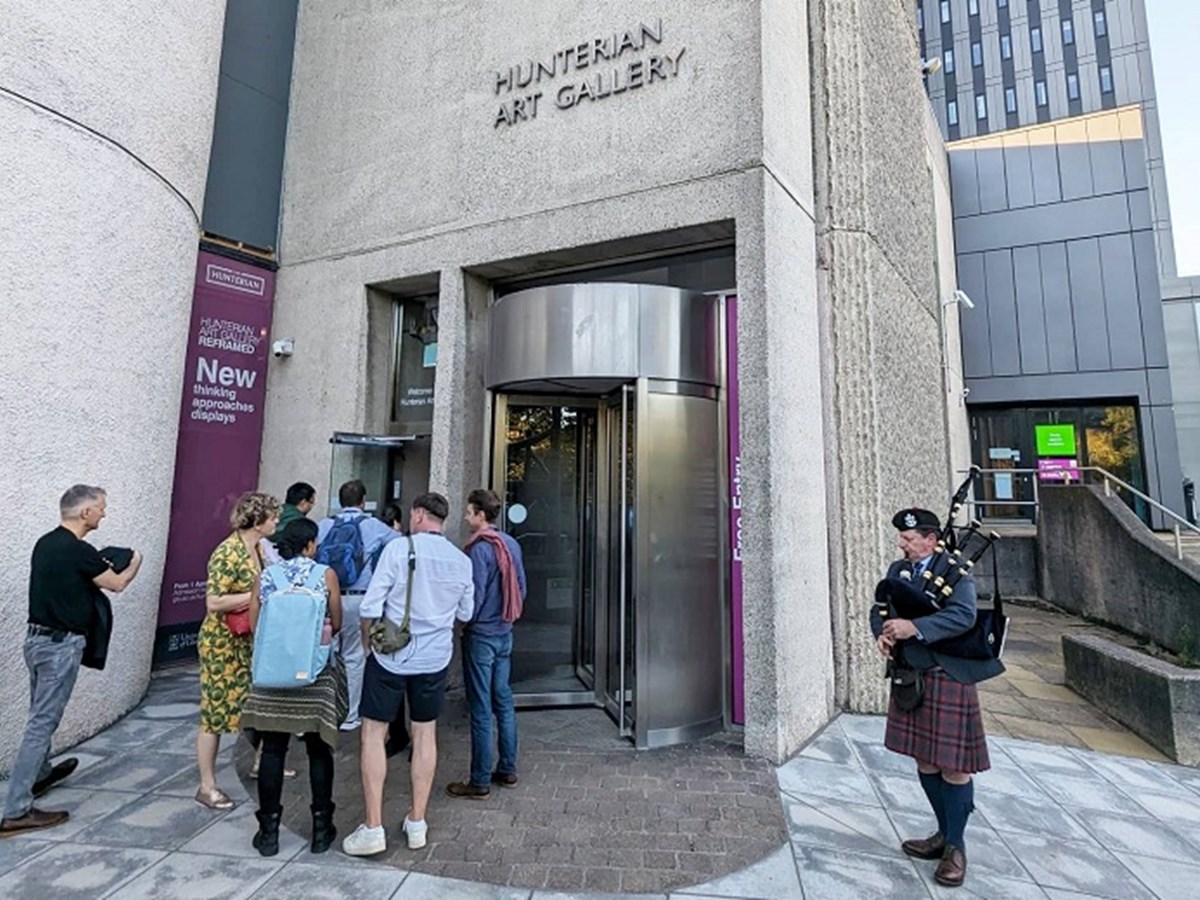Patrick Jones O'Brien is a Research Officer at the RTPI
Two weeks ago, the RTPI Research team joined planning researchers from the UK and around the world in Glasgow for the 2023 edition of the Planning Research conference. At this fascinating and lively event there were dozens of talks to choose from given by a sweeping range of planning research specialists.
My first experience at the Planning Research Conference kicked off with the RTPI Research Awards, where six exciting projects were recognised for their impact and excellence from a competitive field. We were lucky enough to have a few of the recipients in attendance to pick up their award certificates: Catherine Queen, of the University of Liverpool, a collaborator behind the Cities Alive research project researching women’s experience of the urban, and Danielle Brook of Anglia Ruskin, who won an award for studying a method of assessing green spaces in East Anglia.
The next day we got stuck into the conference. The research presentations in Glasgow were arrayed across ten themes, from digital and big data to climate and environment to theory to governance. Such a wide breadth of topics spurred lively and wide-ranging discussions. In one session alone, in the transport planning and mobility theme, we heard an exploration of the co-design of bus system components in Cardiff and a critique of the reconstruction of Delhi’s neighbourhoods to increase off-street parking.


One study of the discourse of the protest in Oxford this past spring against fifteen-minute cities stuck out to me. Dr Shirazi of Oxford Brookes gave a comprehensive overview of the fifteen-minute city concept in Oxford and the UK as well as in the perceptions of protestors in Oxford. Intriguingly, he pointed out that the number of unique signs counted and documented at Oxford in this study was markedly disproportionate to the number of protesters, when compared to the average protest. Put simply, the number of homemade signs was more than one would expect, and the content of those signs varied dramatically.
There are many possible explanations for this fact, not least one of those posited by Dr Shirazi: that many protesters have divergent understandings of what the fifteen-minute city is and why it ought to be opposed. Dr Shirazi’s talk led me to reflect on the new pressure planners face now that some planning concepts have drawn uncommon attention to the profession in the press and pop culture, as well as the ire of conspiracists, and reminded me of the upcoming launch of the RTPI’s campaign around disinformation.
Our team had the chance to host a discussion of our own in Glasgow. Dr David Mountain was joined by my colleagues Dr Dan Slade and Gábor Csontos as well as Leeds Beckett’s Charlotte Morphet and UCL’s Dr Mark Tewdwr-Jones to discuss the state of the planning profession. They fruitfully explored the profession’s fundamental questions. What does it mean to do planning research? How do we think about planning and planners beyond the specific confines of the planning system? Should planning researchers focus on studying planners and the planning system, or do they generate evidence and research that is useful for planners and planning? How does critical research fit into that? Few resolutions were reached, which seems to square nicely with the shadow of abortive, partial, and amended runs at major reform under which the whole planning profession has operated for more than a few years now.
That question of reform and the state of the planning system recurred frequently in the halls and coffee-queues while we were in Glasgow. The comment about repeated promises and attempts at reform leaving planners, planning, and the development system in a kind of permanent limbo is one I heard several times. Which is not to say there is no longer appetite for change. Every set of presentations featured some criticism of the current setup of planning. But every discussion period following those talks had some acknowledgment of how complex effective reform is, and some understanding of why we find ourselves in the position we do. There is scepticism in the academic community towards the simplifying and market-oriented thrust of reform we’ve seen in the last decade.
Clear to me after my three days shuttling back and forth on Glasgow’s delightful subway was that this is an exciting time for planning and planning researchers. What comes along with a hankering for change is a sincere desire to try out innovative new ideas, to change our perspectives, and to challenge our intuitions and conventions. That represents an opportunity for the original, thoughtful, and diligent research community that gathered at Kelvinbridge and Gilmorehill.


